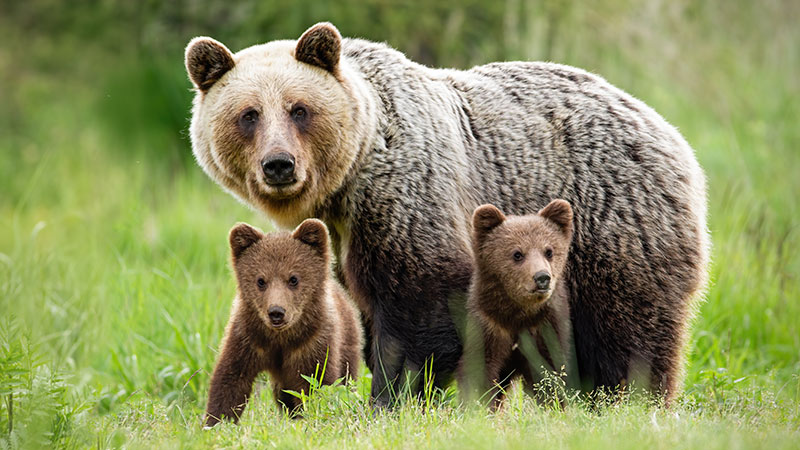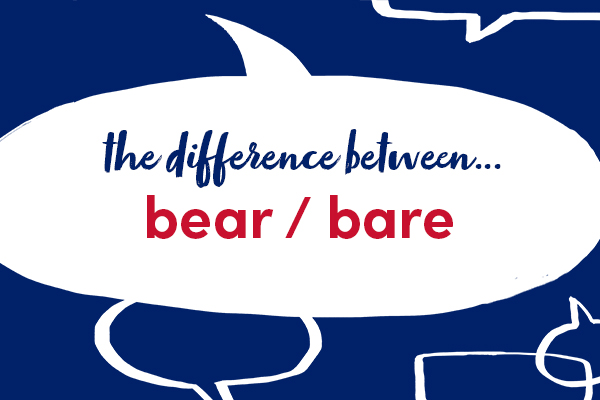This week we are looking at two words which are sometimes confused: bear and bare.
bear

Bear can be a noun or a verb.
A bear is a large, strong wild animal with thick fur and sharp claws.
The bear stood on its hind legs.
If you bear a difficult situation, you accept it and are able to deal with it.
This disaster was more than some of them could bear.
bare

Bare is usually an adjective. Something that is bare has no covering.
The grass was warm under his bare feet.
The walls were bare.
Find out more in our English Usage article.
This blogpost is based on Collins COBUILD English Usage, written for learners of English. For more examples of English usage points, please visit: https://grammar.collinsdictionary.com/english-usage.
All opinions expressed on this blog are those of the individual writers, and do not necessarily reflect the opinions or policies of Collins, or its parent company, HarperCollins.



